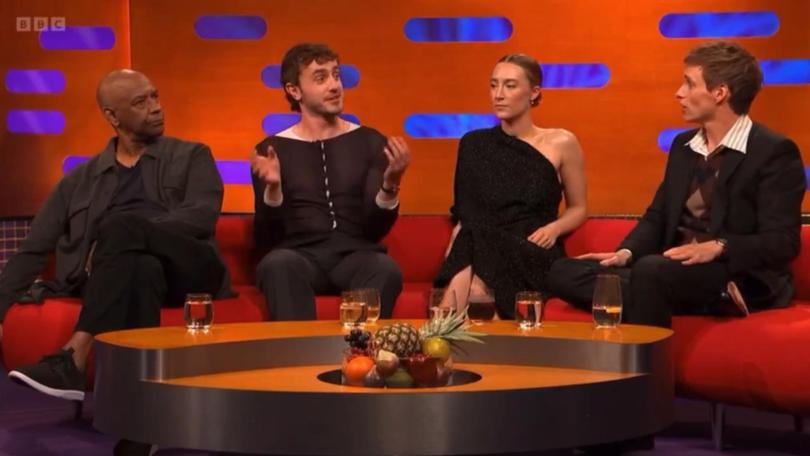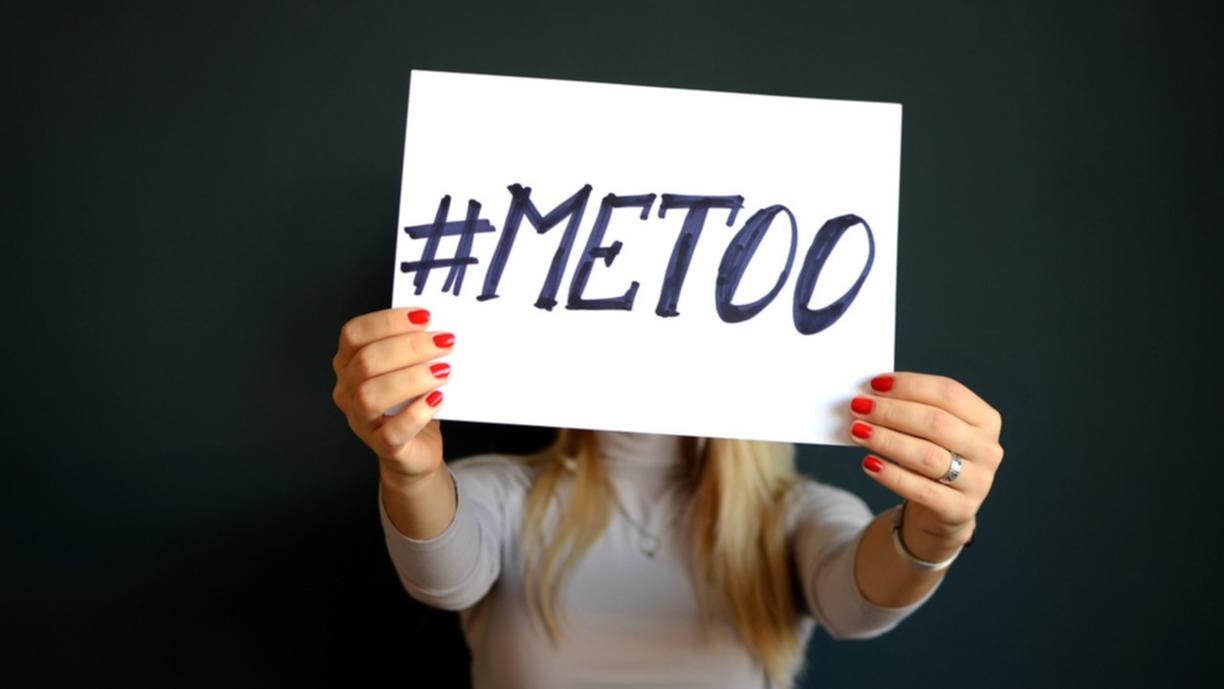Slumped on a sun lounger, I’m in a ‘drunken’ stupor when a man sits down beside me and offers to keep me company.
It’s the early hours of the morning, not far from an array of clubs and bars. Moments earlier, two men, noticing how drunk I appeared to be, had walked over. While one of them sat on a nearby lounger, the other came up and asked: ‘Do you want to kiss a little?’ Slurring my words, I murmured a refusal, and he walked away.
So far, so chivalrous. But things quickly took a sinister turn.
Instead of leaving, he went straight over to a third man who was standing nearby, telling him: ‘She’s completely wasted. Let’s go for it!’
Now, that same man is at my side, having been told I’m too inebriated to resist whatever he and his mates might have in mind. And that terrifying realisation has turned my blood cold.
I am not sure how many men are surrounding me – it could be two, three or even more. Genuinely frightened, I stand up and signal for my security team – seated two sun loungers away – to get me out of there.
You see, I am not in fact inebriated or helpless; I’m filming undercover for my latest Channel 4 documentary, investigating the risks posed to young women who come to party resorts like this.
All the same, I leave the beach shaking and upset, all too aware that had I really been out of it and alone, without my security and TV crew, anything could have happened.
During my three days filming in Majorca’s Magaluf, a popular party spot frequented by thousands of young Brits each year, I had been repeatedly propositioned by men while appearing as though I was out of it. Not to mention groped and leered at in the various clubs and bars. But this particular incident stands out as the most threatening.
Considering 48 rapes were reported to police in the Magaluf area last year – three of which were alleged gang rapes – it’s no wonder I felt scared.
As an investigative journalist, it’s not the first time I’ve gone undercover posing as drunk; I have also filmed documentaries in the UK. Some people have suggested I’m tricking men into behaving badly. But I don’t do anything to try to entice someone over; I don’t start a conversation or even make eye contact with anyone who does.
My aim is to present myself to those in my vicinity as a woman who is both vulnerable and alone. However these men then decide to behave towards me is of their own volition.
Others may say: ‘Not all men are like this.’ I wholly agree. I have a father, a fiancé, male colleagues and friends – all good men. I’m also the mother of a little boy who I’m certain will grow up to be one too. But while I would never suggest that every man is a predator, even the good men seem unable to fully grasp what it’s like for us women.
This was illustrated perfectly by a clip from last Friday’s Graham Norton Show, which went viral.
Actor Eddie Redmayne explained that while training for The Day Of The Jackal, he was taught how to use a phone to retaliate in the event of an attack. Paul Mescal then joked: ‘Who is actually going to think about that? If someone actually attacked me, I’m not going to go “phone”.’ Graham mimicked holding a phone to fend off an assailant, saying, ‘Can you hold on a second?’ to which Eddie replied: ‘That’s a very good point.’
But actress and fellow guest Saoirse Ronan silenced them all with one indisputable sentence: ‘That’s what girls have to think about all the time.’
As I watched, I was struck by the fact that even educated men – men you’d expect to empathise with the female experience – still don’t get it.

Saoirse’s rallying follow-up: ‘Am I right, ladies?’ prompted thunderous applause from the women in the audience, with no doubt many cheering at home too. Women who collectively know how it feels as if you’re going into battle every time you walk home with your keys sticking out between your knuckles, just in case you’re attacked.
Saoirse has since responded to the ‘wild’ reaction to the clip, saying that she didn’t seek to ‘make a splash’ but hopes that ‘opening a conversation’ allows ‘more and more women to just be like “Well, yeah, actually, let’s talk about our experience”.’
She also referred to what she calls the ‘fake phone call’ – and the way this has become a tacit ‘survival tactic’ among women looking to dissuade men from approaching them: ‘We’ve all sort of subconsciously found the same tools and use them again and again, and I find that really interesting.’
The statistics around sexual harassment and assault are certainly appalling. Among women of all ages, 71 per cent have experienced some sort of sexual harassment. One in four of us has been raped or sexually assaulted.
I’m one of those statistics. Aged 18, I stood in a local kebab shop after a night out and rejected a man who was trying it on with me. Ten years later, I can still vividly recall exactly how it felt when he then thrust his hand up my skirt. That experience doesn’t just sit somewhere inside my head – distressingly, my body remembers it, too.
In the years since, I’ve been groped countless times, although nothing quite as bad as that awful teenage experience. I think you’d be hard-pressed to find any woman who doesn’t have a story of sexual harassment or assault to share in some form.
Which is why I secretly film how men react when a potentially vulnerable woman comes into their orbit. I don’t just want to make women feel heard – I also want to try to help men understand.
After training as a journalist, I wrote my first piece about how mine and my friends’ pictures had been used on social media accounts by strangers to catfish people into believing they were talking to someone else. This led to the BBC commissioning a series called Ellie Undercover.
Since then, I’ve made 18 documentaries across Channel 4 and other broadcasters, the majority of which focus on issues affecting young women, inspired in part by my own negative experiences.
I often receive messages from women sharing their own distressing experiences of sexual harassment and assault and thanking me for highlighting the dangers we face. But it’s the supportive messages from male viewers that give me hope that my work can make a difference.
One of my last documentaries saw me expose the sometimes daily sexual harassment women face in the UK, including how I was followed back to my hotel room by a man who thought I was drunk and received countless unsolicited pictures of male genitals from others who pursued me via dating apps. After the programme aired, I received countless messages from men stating, in baffled tones: ‘I had no idea.’
While I’m glad these men felt engaged enough to want to get in touch, I also think: ‘How can you say you don’t know when women have been telling you all this for years?’
It’s a shame I have to keep putting myself in these situations to make this explicit, but it’s become a way of shaking men and saying: ‘This is the reality we face.’
My work has led me to conclude that rather than putting men in one of two camps – either good or bad – their behaviour actually sits on a spectrum.
There are those who exhibit predatory behaviours with nefarious intentions and others who don’t even realise they’re being predatory when they try it on with a woman who is too drunk to consent.
A survey we commissioned as part of Magaluf Undercover explored experiences on party holidays and found almost a third of the men we spoke to had kissed someone without their consent during a night out.
But there are the good guys, too – the ones who wouldn’t dream of doing anything similar.
That said, some of these good guys see their mates behaving badly towards women and don’t call them out for it.
As Saoirse says, it’s good to reopen the conversation. But we need to be sure men are really listening this time. Only then will things truly change for women.
